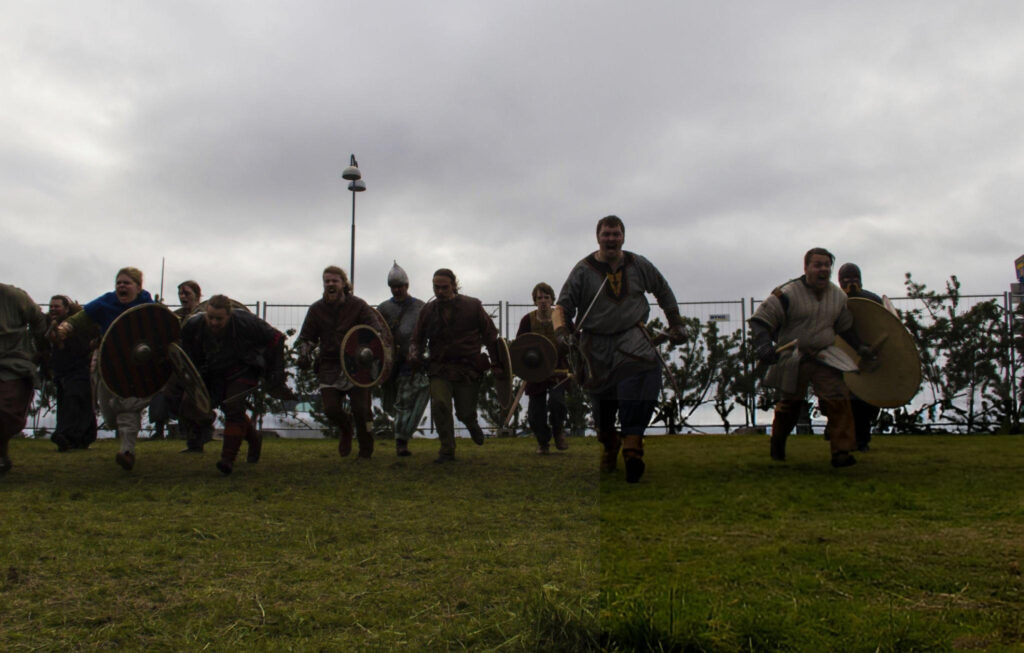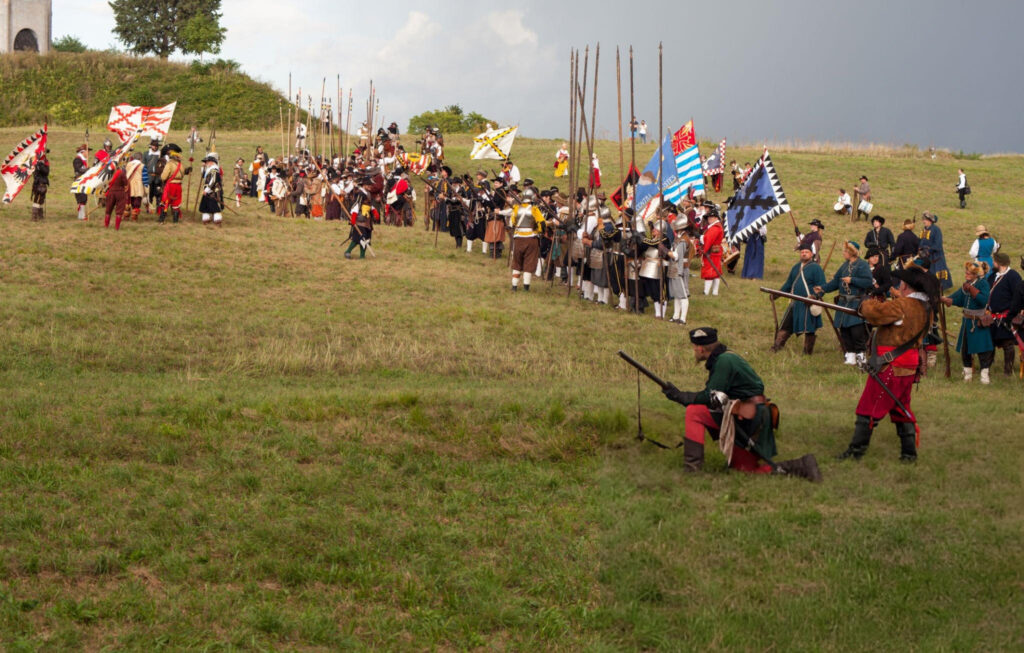Alfred the Great (849–899), King of Wessex, is a towering figure in English history. His reign was marked by pivotal events that helped shape the future of England, particularly his successful defense of Wessex against Viking invasions. Alfred is not only remembered as a warrior king but also as a learned ruler who made substantial contributions to education, law, and governance. This blog will explore his life, his strategies in defending Wessex, and how he laid the foundation for the eventual unification of England.
Early Life and Ascension to the Throne
Alfred was born in 849 in Wantage, a part of the kingdom of Wessex, to King Æthelwulf and Osburh. He was the youngest of five brothers, all of whom played significant roles in Wessex’s political landscape. Despite being the youngest, Alfred showed early signs of leadership, earning admiration for his scholarly pursuits and martial aptitude. His education, particularly his journey to Rome where he was reportedly blessed by Pope Leo IV, made a profound impact on his worldview, exposing him to the broader European Christian culture.
The political situation in Wessex during Alfred’s youth was unstable, as Viking forces were intensifying their raids on Anglo-Saxon territories. Alfred’s rise to power began in 871, following the death of his brother Æthelred I. Wessex was the last of the Anglo-Saxon kingdoms not fully conquered by the Vikings, and Alfred took the crown during one of the kingdom’s darkest periods.

.The Viking Threat
The Vikings, known for their ferocious raids, began to expand beyond mere pillaging during the 9th century, aiming for permanent settlements. By the time Alfred ascended the throne, much of England had fallen under the control of the Viking Great Heathen Army. The Anglo-Saxon kingdoms of Northumbria, East Anglia, and Mercia had already been overwhelmed, leaving Wessex as the last bastion of resistance.
Alfred’s reign was tested from the outset. In his first year as king, he faced a series of fierce battles against the Viking forces. The Battle of Ashdown in 871, fought under Alfred’s leadership, was one of the few early victories for Wessex. However, despite this success, Wessex was far from secure, and the Viking threat remained ever-present.
The Critical Year: 878
The year 878 proved to be a turning point in Alfred’s reign and in English history. Guthrum, a prominent Viking leader, launched a surprise attack during the winter, catching Alfred and his forces off guard. Forced to flee into the marshlands of Somerset, Alfred sought refuge at Athelney, a swampy and isolated area. Here, according to legend, Alfred disguised himself as a commoner and lived in hiding while organizing a resistance.
This period in the marshes became legendary for Alfred’s resilience. It was during this time that he allegedly burned the cakes while staying in a peasant woman’s house, a famous story symbolizing his humanity and humility. More importantly, it was in the marshes that Alfred rallied the local Anglo-Saxon forces and planned a counterattack.
The Battle of Edington
In May 878, Alfred emerged from hiding and gathered his army. At the Battle of Edington, Alfred achieved a decisive victory over Guthrum’s forces. This victory was crucial not only for the survival of Wessex but also for the future of England. Following the battle, Alfred pursued the Vikings to their stronghold and besieged them, forcing Guthrum to surrender.
The Treaty of Wedmore was subsequently negotiated, marking a pivotal moment in Anglo-Saxon and Viking relations. Under the treaty, Guthrum agreed to be baptized as a Christian, and the Vikings withdrew to East Anglia, which was part of the Danelaw, the area under Viking control. This marked the beginning of a period of relative peace between the Anglo-Saxons and the Vikings, and it allowed Alfred to focus on fortifying Wessex.
Fortifications and Military Reforms
Alfred’s victory at Edington was not the end of the Viking threat. Recognizing that further invasions were inevitable, he implemented a series of military reforms designed to strengthen the defense of Wessex. One of his most significant contributions was the construction of a network of fortified settlements known as burhs (or boroughs). These strategically located forts provided protection for local populations and acted as bases from which Alfred’s forces could launch counterattacks against Viking raiders.
The burhs were interconnected, forming a defense system that allowed Alfred’s army to respond quickly to threats. The system was highly effective, and many of these fortified towns later developed into major cities. In addition to this, Alfred reorganized the military, creating a standing army that could be mobilized more effectively. He also invested in a navy, recognizing that the Vikings’ strength lay in their maritime capabilities. By building a fleet of ships to patrol the southern coast of England, Alfred laid the foundations for England’s future naval dominance.
Legal and Educational Reforms
Alfred’s legacy is not limited to his military achievements. He was deeply committed to improving the legal and educational systems of his kingdom. As a ruler, Alfred believed in the importance of justice, and he codified a set of laws known as the “Doom Book,” which combined Mosaic law, Christian principles, and older Anglo-Saxon legal traditions. These laws were designed to promote fairness and ensure that justice was accessible to all.
Furthermore, Alfred was a scholar at heart. He lamented the decline in education that had occurred as a result of the Viking invasions and sought to revive learning in his kingdom. Alfred himself translated several important Latin works into Old English, including Pope Gregory the Great’s Pastoral Care and Boethius’s Consolation of Philosophy. His commitment to education also extended to the clergy and nobility, whom he encouraged to learn to read and write, ensuring that future generations of leaders would be well-educated.
Legal and Educational Reforms

Alfred’s Legacy and the Unification of England
Alfred’s reign was transformative for Wessex and laid the groundwork for the eventual unification of England. Though he did not live to see a unified England, his efforts to defend and consolidate Wessex set the stage for his successors, particularly his son Edward the Elder and grandson Æthelstan, to expand their control over the rest of the Anglo-Saxon kingdoms.
Alfred’s legacy is so enduring that he is the only English monarch to be called “the Great.” His combination of military acumen, legal reform, and commitment to education made him a multifaceted ruler who not only preserved his kingdom from external threats but also strengthened it from within. His efforts ensured that Wessex remained the heart of Anglo-Saxon resistance to the Vikings, and it eventually became the nucleus of a unified English kingdom.
Conclusion
Alfred the Great’s reign was marked by one of the most turbulent periods in English history. His ability to adapt, organize, and inspire his people ensured the survival of Wessex and, ultimately, the survival of Anglo-Saxon culture. Through his military strategies, legal reforms, and commitment to education, Alfred not only defended his kingdom but also laid the foundations for the unification of England. His legacy as a warrior king, lawgiver, and scholar remains a vital part of English heritage, and his influence can still be felt in the legal and educational institutions of today.
